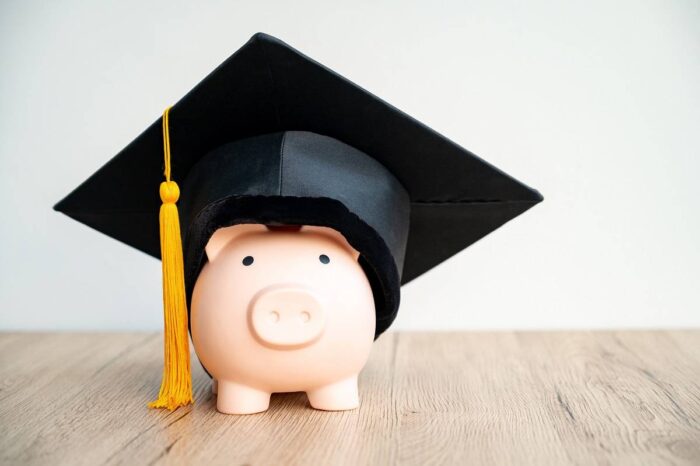Pursuing graduate studies is a great opportunity to enhance your learning and broaden the opportunities available in your industry. But graduate school can be costly, and you may wonder if there's a Pell Grant for Master's students.
Read on to find out and learn of available financial aid options.
What is a Pell Grant?
Students can receive a Pell Grant from the US Department of Education to help pay for their education. To receive a Pell Grant, the student must demonstrate financial need. The Grant amount depends on the student's Expected Family Contribution (EFC), their enrollment status, and their school's costs of attendance.
The Pell Grant does not require repair. It can be used to pay various fees, room and board, textbooks, and other education-related expenses. Pell Grants are typically awarded for the full academic year, but students may also be eligible to receive Pell Grants for summer school or other short-term programs.
Who Qualifies for a Pell Grant?
To be eligible for a Pell Grant, a student must be an undergraduate who has yet to earn a bachelor's degree. The student must also be a US citizen or eligible non-citizen and must demonstrate financial need based on the information provided on their Free Application for Federal Student Aid (FAFSA).
Unfortunately, Pell Grants are not awarded to graduate students except if you're enrolled in a postbaccalaureate teacher certification program. Instead, graduate students can turn to other sources of financial aid.
How to Apply for a Pell Grant
A FAFSA (Free Application for Federal Student Aid) is required to apply for a Pell Grant. The FAFSA determines Pell Grants and other federal financial aid programs.
You'll be asked to provide personal and financial information so they can determine your EFC, which is the basis for the amount of financial aid you'd receive.
After you have submitted your FAFSA form, you will receive a Student Aid Report (SAR) in the mail or electronically. This report will show you the information you submitted on the FAFSA and your Expected Family Contribution (EFC). Review the SAR carefully for accuracy and follow any instructions for making corrections if necessary.
Types of Grants Available
Several types of grants are available for master's students, depending on their field of study, financial needs, and other eligibility criteria. Here are some common types of grants that master's students may be eligible to receive:
Federal Grants
- TEACH Grants: These grants are available to graduate students who plan to teach in high-need fields in low-income schools. To be eligible, students must agree to teach in a qualifying school for at least four years after graduation.
- Fulbright Grants: Fulbright Grants are grants available to graduate students who want to conduct research or study abroad. Fulbright grants are highly competitive and are awarded based on academic merit and research proposals.
- National Science Foundation (NSF) Grants: NSF Grants are available to graduate students studying science, technology, engineering, or mathematics (STEM). Grants are awarded based on academic merit and research proposals.
Frequently Asked Questions
Check out the answers to your commonly asked questions.
Graduate students can apply for federal student aid by completing the FAFSA application, which determines their eligibility for various forms of financial assistance, including grants, loans, and work-study programs.
Graduate students can apply for federal student loans to help pay for their education. Federal student loans are available to graduate students in two main categories:
The Direct Unsubsidized Loan program is available to all graduate students regardless of financial need. Graduate students can borrow up to $20,500 annually in Direct Unsubsidized Loans. The interest rate is fixed and set by the federal government each year.
PLUS Loans: This type of loan is available to graduate students who need to borrow more than the maximum amount available through Direct Unsubsidized Loans. It is required that borrowers with adverse credit histories do not apply for Direct PLUS Loans. Each year, the federal government sets the interest rate.
Both types of loans have certain terms and conditions that borrowers must meet. For example, borrowers must be enrolled at least half-time in an eligible graduate program and maintain satisfactory academic progress. The repayment terms for federal student loans vary based on the type of loan and repayment plan selected by the borrower.
There are several ways to pay for graduate school without taking out loans:
Scholarships and grants: Look for scholarships and grants offered by your school, government agencies, non-profit organizations, and private companies.
Work-study programs: Some schools offer work-study programs that enable students to earn money while studying on campus. These programs can help you reduce out-of-pocket expenses and gain valuable work experience.
Teaching or research assistantships: Many graduate programs offer teaching or research assistantships to qualified students. These positions typically come with a stipend and tuition waiver in exchange for your work as a teaching or research assistant.
Employer reimbursement: If you're currently employed, check with your employer to see if they offer tuition reimbursement programs for employees pursuing advanced degrees. Many companies offer these programs to invest in their employees' professional development.
While Pell Grant for Masters is generally not available for graduate students, many financial aid options are still available for those pursuing advanced degrees. Graduate students can apply for scholarships, grants, fellowships, and assistantships.
They may also be eligible for federal student loans. Financial aid applications should be submitted early because many programs have limited funding and deadlines. Is he still wondering about the Pell Grant? Understand how Pell Grant works in this blog.
If you want to know about the GPA requirements for a Pell Grant. Visit our article today to learn more.





